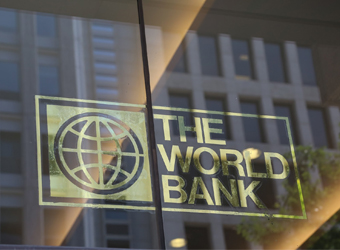The World Bank has approved a new loan of $1.485 billion to help Iraq lessen the impact of low oil prices on its economy and shoulder the cost of the war on Islamic State, the international lender said in a statement on Tuesday.
The new loan brings the World Bank’s engagement in Iraq to nearly $3.4 billion, it said.
The Bank provided $1.2 billion and $350 million in support to Iraq in 2015, a year after Islamic State seized about a third of the country’s territory.
The lightning advance of Islamic State happened as oil prices collapsed, drastically reducing the government’s income, which comes almost exclusively from crude sales.
Iraq is OPEC’s second-largest oil producer after Saudi Arabia.
The new loan aims to support government efforts to rationalize spending, improve energy efficiency and enhance governance at state-owned companies, the World Bank said.
In Iraq, “we are looking at a unique case, frankly,” said World Bank Director for the Middle East Ferid Belhaj.
The country is “engaging in structural, deep, far-reaching reforms at the same time as fighting a brutal war against a destructive force,” he told Reuters in a telephone interview.
The war on Islamic State has made about 3.4 million Iraqis homeless and caused damage estimated at $35 billion by Prime Minister Haider al-Abadi.
The hardline group has been retreating since last year. It is now fighting off a U.S.-backed offensive on Mosul, the last major Iraqi city under its control.
It is the latest episode in more than 30 years of wars, unrest and international sanctions that have taken a heavy toll on Iraqi infrastructure.
The International Monetary Fund in July approved a new three-year, $5.34 billion standby arrangement to support Baghdad’s efforts to deal with lower oil prices and ensure debt sustainability.
The country’s oil and gas wealth constitute a solid loan repayment guarantee, said Belhaj.
“Iraq is one of the richest countries on the face of the earth. Iraq has huge potential and Iraq has the capacity to repay its debt,” he said.
“It has the capacity to leverage its resources to engage in a total new era of diversification” away from the oil industry, he said.
Source: Reuters


